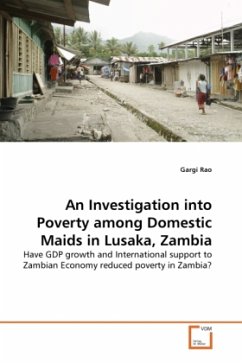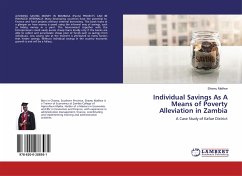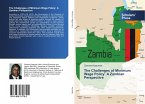Zambia has adopted national policy planning and poverty reduction strategies to reduce absolute and substantive poverty in the country with programmes of economic growth lead development and showing growth in GDP. There a number of International Donors opened their shops in the name of cooperating partners and pumping money into Zambian economy. However, the fruit of GDP growth has not reached most vulnerable in the country. Domestic Maids, female workers who work for urban middle class, rich, and the affluent are the poorer segment of the society requiring immediate attention of Government, Policy makers, and International Cooperating partners. The condition of Child Domestic workers is still pathetic to make any civilised nation shameful. The research throws light on the poor living conditions of the Domestic Maids and proves that GDP growth has not trickled down to the poverty reduction among them. Academics, Policy Makers, Government, Researchers, and the General readers findthis book more interesting and it will sure make them think before taking decisions and making claims of poverty reduction in Zambia.







